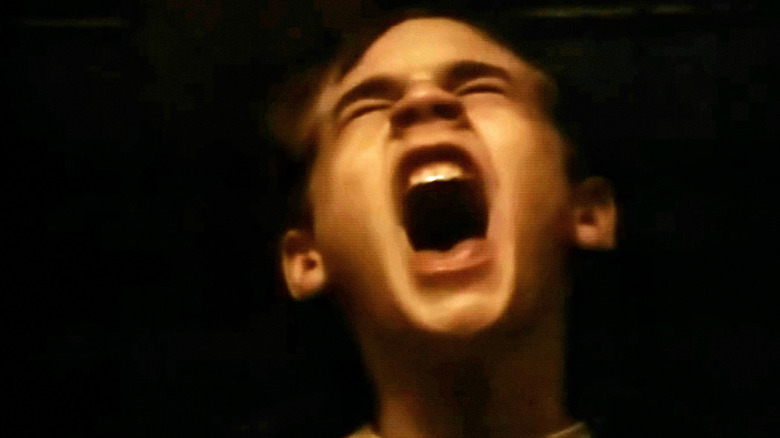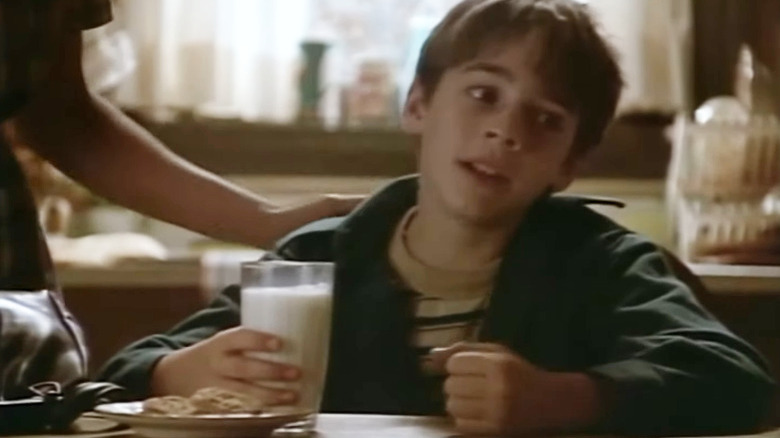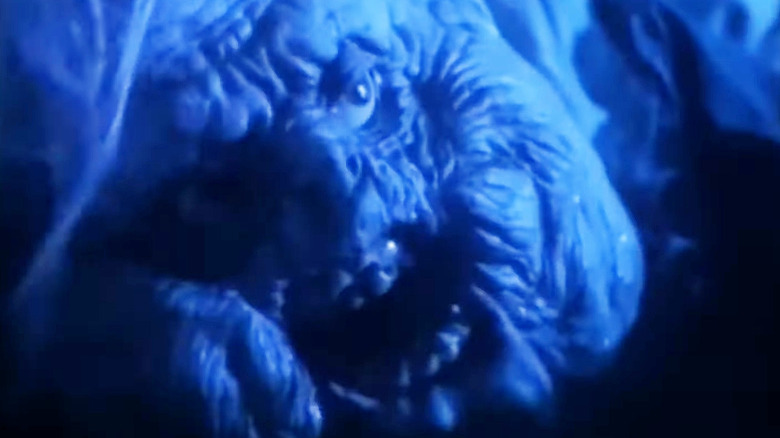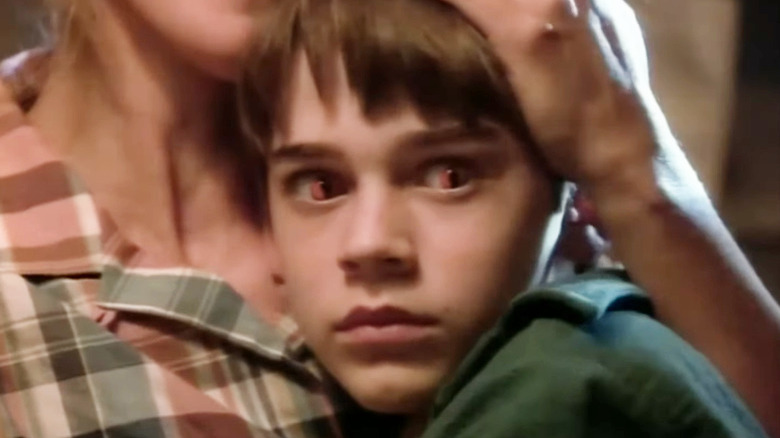This Is The Only Twilight Zone Episode Based On A Stephen King Story
Sometimes it seems like Stephen King has done literally everything a person could do. As of this publication he has written over 70 books and over 200 short stories. He directed a movie where the Green Goblin was a killer truck possessed by a comet. He wrote an episode of "The X-Files." He did a cameo on "The Simpsons." Twice. He even did an "X-Men" comic book once.
So it probably comes as no surprise that Stephen King's work has been adapted into an episode of "The Twilight Zone." Indeed, the only things that are surprising about it is that it only happened once, and that hardly anyone has heard of it nowadays. But it's real. It's based on Stephen King's short story "Gramma," it was adapted by sci-fi luminary Harlan Ellison, it co-stars Piper Laurie from "Carrie," and it's part of the H.P. Lovecraft Cthulhu mythos.
That's a whole lot to cram into a 21 minute story, but damn if it doesn't work.
Gramma's boy
"Gramma" takes place entirely in the home of Georgie, an eleven-year-old who is left alone to take care of his sick grandmother while his mother goes to the hospital. Georgie, played by "The NeverEnding Story" and "D.A.R.Y.L." star Barret Oliver, is eager to accept grown up responsibilities. "I'm not six anymore," he says. "I'm eleven! I'm cool!" But when he finally finds himself alone in the house with his Gramma, he suddenly wishes he was anywhere else.
When Gramma, voiced from the other room by the late Piper Laurie (who previously earned an Oscar-nomination for her role in the first-ever Stephen King movie, "Carrie"), calls out for her tea in a sickly, ominous voice, Georgie gets her tea ready and accidentally spills it next to her bed. He sees the tea sink into the floorboards, as if there was an empty space beneath them, and while Gramma is sleeping he opens it up and finds the Necronomicon — a book of ancient rites and evil spells, invented by H.P. Lovecraft and used as a helpful plot device by horror storytellers ever since — and shudders as she cries out the names of ancient gods like Yog-Sothoth and Cthulhu.
Georgie has nobody to talk to, so the majority of the dialogue in "Gramma" takes place inside his head, as he debates what to do about the scary old woman, and remembers his mother arguing with her siblings about who should take care of the her. His uncle blamed Gramma for a "trail of evil" that included burning down houses, dogs fed with human meat, and children born with no fingers.
And this is who mom left Georgie alone with. Sheesh.
Deathstyles of the witch and soulless
Georgie is both horrified and relieved when he discovers that Gramma has died on his watch. On the one hand, the scary person he lived with is gone, but on the other hand, she was his responsibility. He can't call anyone because the phone line is tied up (it was the 1980s, so that was still a thing), and before long he gets it into his head — or perhaps the voice of his Gramma put it there, to go back into her room and cover her face out of respect for the dead.
What happens next would have scared the living hell out of me as a child, because Gramma springs to life and drags Georgie into bed with her, revealing a monstrous visage and a terrible purpose, as she consumes the child and seems to send him straight down into the depths of hell.
The story ends with Georgie's mother coming home and finding her son staring down at the dining room table, telling her that Gramma is dead. As she consoles Georgie, a look of undeniable relief passes over her face, and the camera finally catches Georgie's glance. His eyes are red, and looking straight at the camera. It's both frightening and mildly comical, since it's essentially the same way the music video for Michael Jackson's "Thriller" ends.
P.S. I Lovecrafted you
"Gramma" doesn't just reference H.P. Lovecraft's work by name-checking his fictional tomes and elder gods. It also seems closely inspired by Lovecraft's 1937 short story "The Thing on the Doorstep," about a man whose malevolent wife uses dark magic to transfer her consciousness into his body. Georgie's Gramma seems to have learned the same spell and used it to live forever, or at least for another generation, by taking over her grandson. Yikes.
There's a simplicity to "Gramma" that screenwriter Harlan Ellison and director Bradford May (who later directed the TV movie thriller "Gramps," starring Andy Griffith as another frightening grandparent) effectively capitalize on. The sense of being a child, alone in the house but with responsibilities. The unease that stems from being with adults you do not trust, and find threatening. The half-understood conversation fragments you overhear from grown ups that ignite your paranoid imagination.
It's a tricky short to adapt, since so much of it takes place in Georgie's head. Barret Oliver was a talented young actor and successfully conveys Georgie's inner and outer plight. Oliver gave up acting in 1989 and became a photographer but this episode, and his work in cult classic films like "D.A.R.Y.L." and Tim Burton's original live-action "Frankenweenie," remain a testament to his acting ability. And of course Piper Laurie is delectably, phlegmatically sinister as the title character.
Stephen King's short story would later be adapted into a feature film, "Mercy," from the director of "A Haunting in Connecticut." Though less well-regarded, the film is easier to track down on streaming services than the 1980s "Twilight Zone" series, which — thanks to great episodes like "Gramma" — is long overdue for a resurgence.



